The digital security rules for journalists during the war were discussed at a training session at the Kyiv Journalists’ Solidarity Center (JSC) of the National Union of Journalists of Ukraine (NUJU).
It was conducted by Andrii Yurychko, a journalist/media trainer at the Academy of Ukrainian Press.
Opening the event, the NUJU First Secretary, Lina Kushch, emphasized the event’s relevance for media professionals.
“Safety training sessions for journalists cover various aspects: physical, medical, psychological safety, protection from radiation and chemical threats, and land mine protection. Digital security is a cornerstone for training journalists to work in combat zones, occupation, and relatively calm Ukraine territories,” she said.
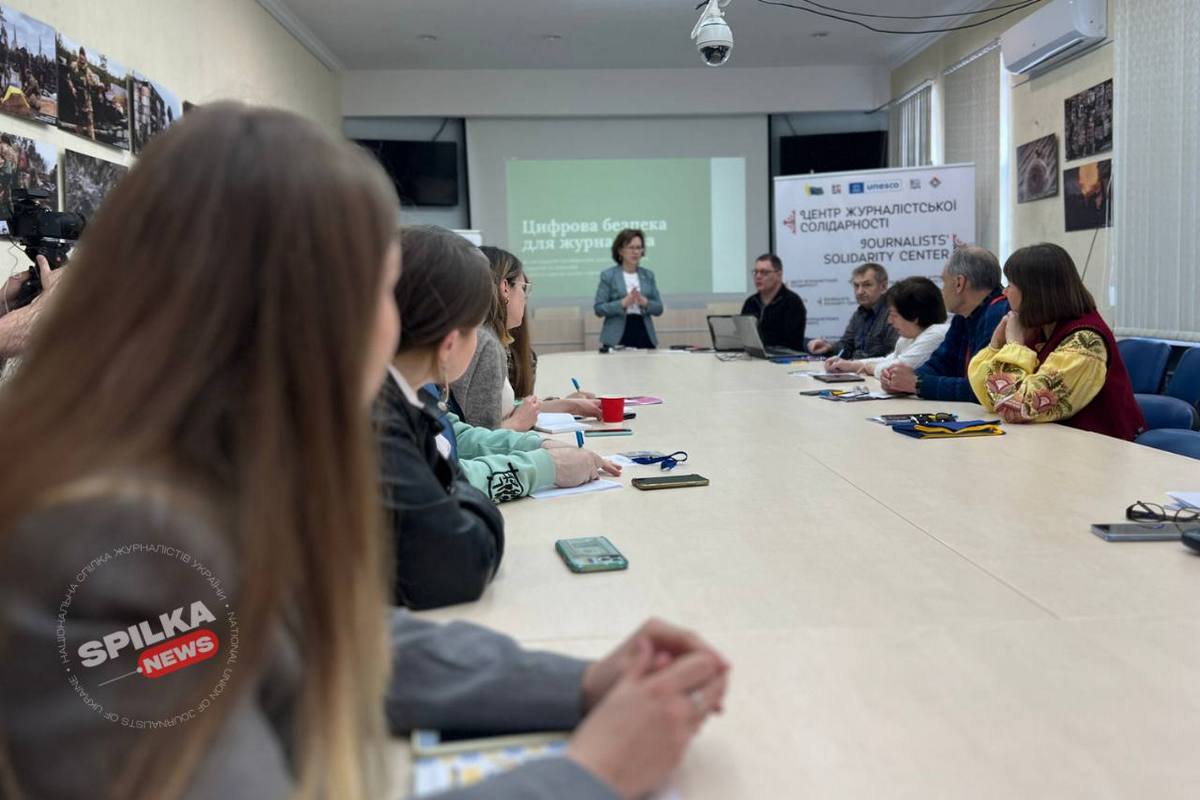
UNESCO Project Officer in Ukraine Theresa Chorbacher attended the NUJU’s training. She noted that freedom of speech is an important condition for the safe work of journalists. UNESCO has many areas of activity in this context.
Andrii Yurychko said that digital security specialists play an essential role in ensuring digital protection: they protect data, servers, and communication channels, and often, the military are engaged in this. However, journalists must also understand the principles of smart surfing, to put it simply, to be aware of which site you are on, which letter or file you open, and what harm they may cause.
Digital security is a set of hardware, software, and behavioral measures to protect information from unauthorized interference and distribution. Its implementation is not limited to one action.
“I am glad that UNESCO supports it, and NUJU never forgets that digital security is a process. You can’t set up a computer or phone once [and forever],” says the expert.
He emphasized that digital security is especially relevant during the war because the personal contacts of politicians, journalists, volunteers, and the military are of interest to the enemy.
What risks depend on us, and what do not
Andrii Yurychko said that the threats of becoming a victim of hackers are divided into those that can be controlled and those that are beyond our control. For example, voluntary downloading of specific applications and programs is included among the first.
“If you see an application that helps you work on Facebook or Instagram, you should check it carefully because you give the application developer full access to your profile. Without it, it can’t do anything, including collecting stats. So, if it is an official application with specific functionality, you can use it. If it is a plug-in application, you should consider whether it is worth installing it,” the expert noted.
Risks that we cannot influence include payment online
Andrii Yurychko advised using payment services such as Privat24 and LiqPay, as they involve data exchange, not information storage.
“90% of account hacks happen through spam because it’s the cheapest way,” says the expert.
Digital behavior rules
To be able to protect journalist’s data, Andrii Yurychko gave the following tips:
- Check apps for compatibility (developer name, number of downloads, official logos, call to download via official page).
- Install an antivirus with regular module and database updates (check your computer for viruses at least once a month).
- Use the built-in security functions of the phone, such as face ID, fingerprint, graphic key, and digital or alphanumeric key for access.
- Keep where and how the data is stored and what programs protect them in secret.
- Update computer and phone operating systems and software versions.
- Thoroughly erase all the data when transferring or selling your equipment to third parties.
- Do not believe ‘alarming messages’ about viruses on your phone or computer on websites, pop-up windows, letters, or messages in the mail.
- Have a backup mail for restoring profiles (unknown to anyone and unused by you).
He also recommended some apps to improve digital security: Speedify (for safer live streaming), Surfshark (which has a data leak detection system), Psiphon (VPN service), etc.
Call the Kyiv JSC by dialing 050 680 5204 (Illia Suzdaliev, the Kyiv JSC coordinator). The Center address is 27a Khreshchatyk Street.
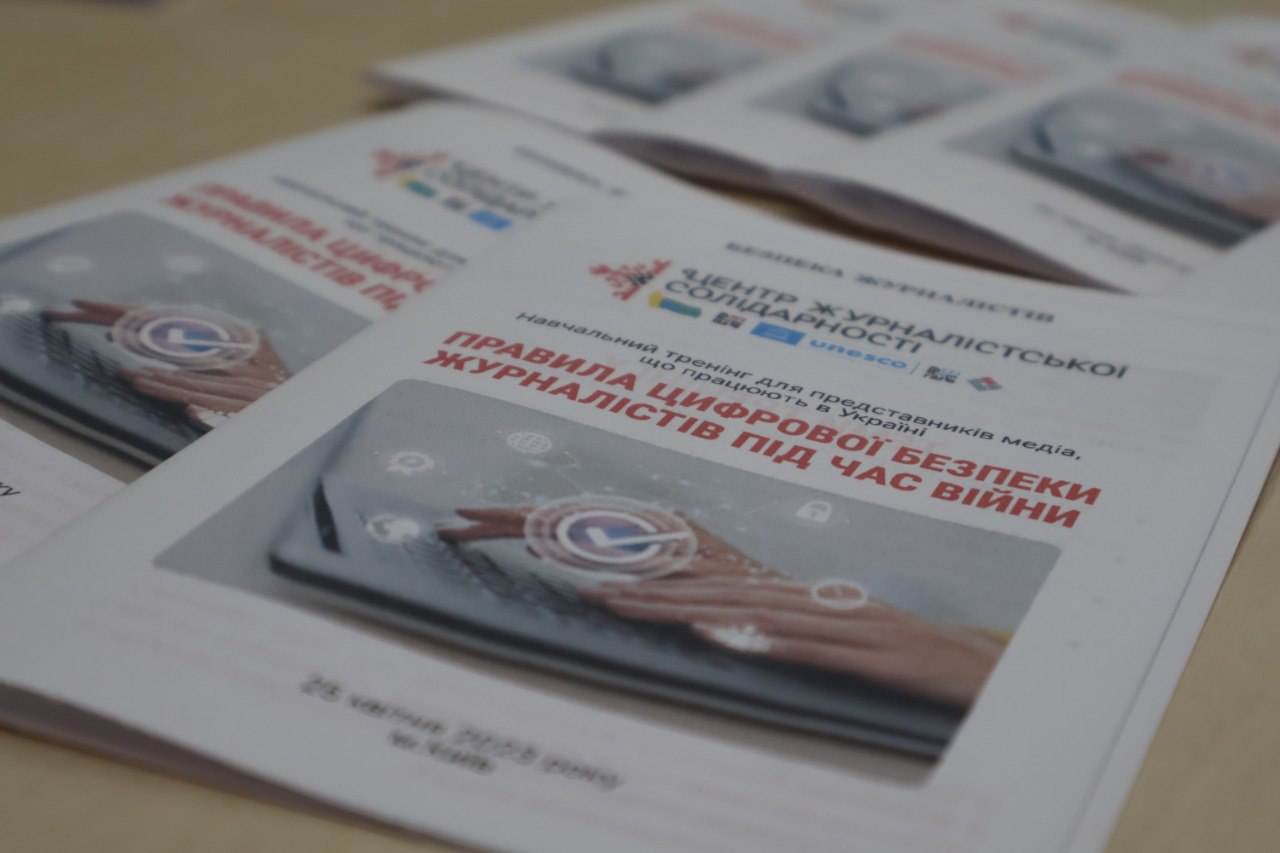
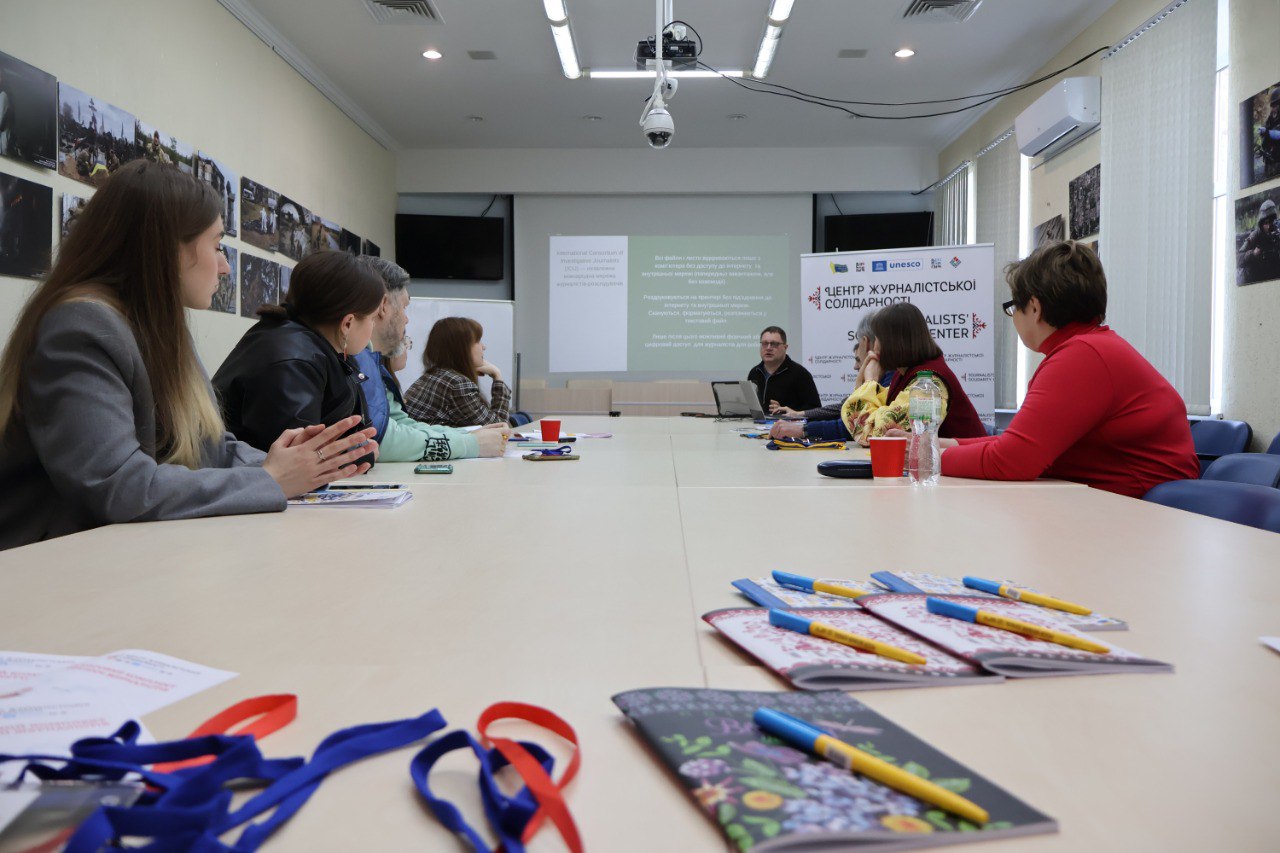
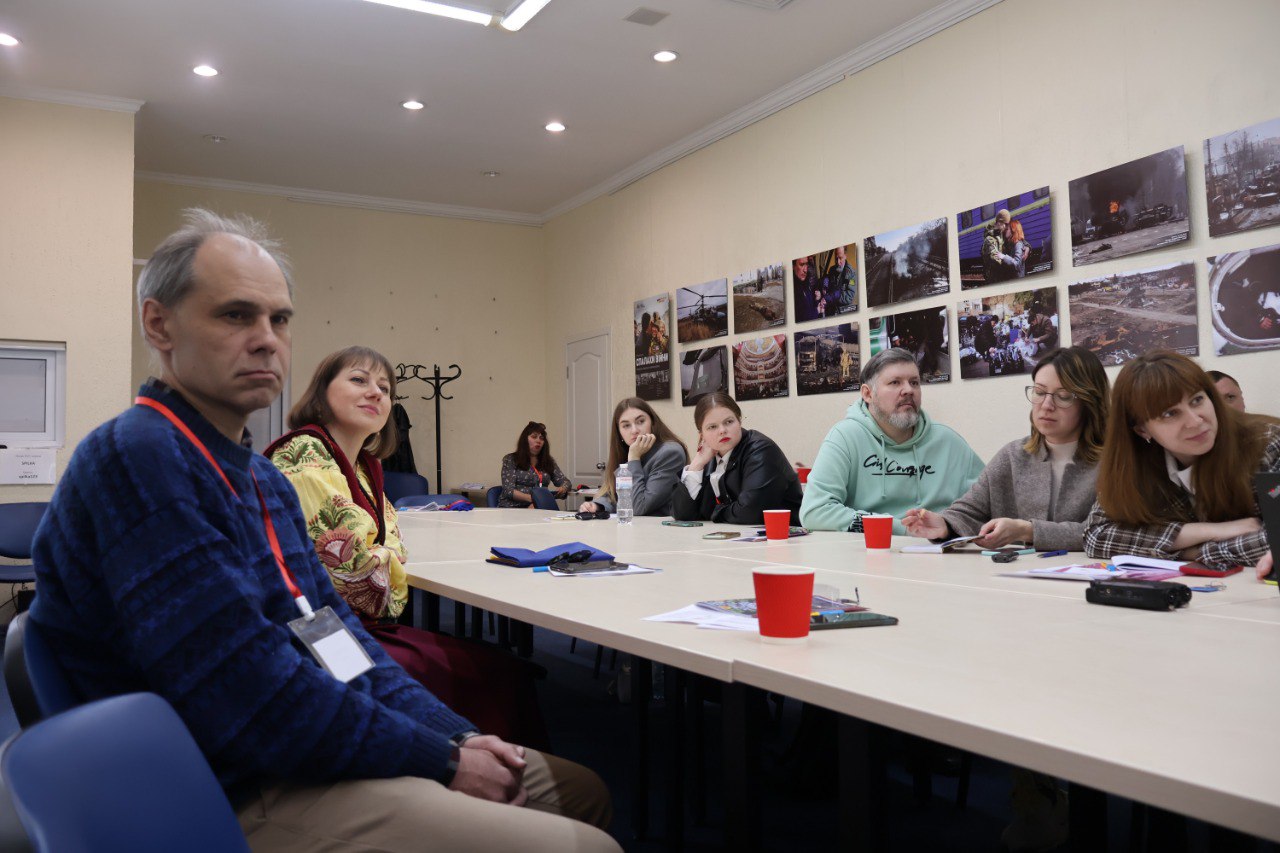
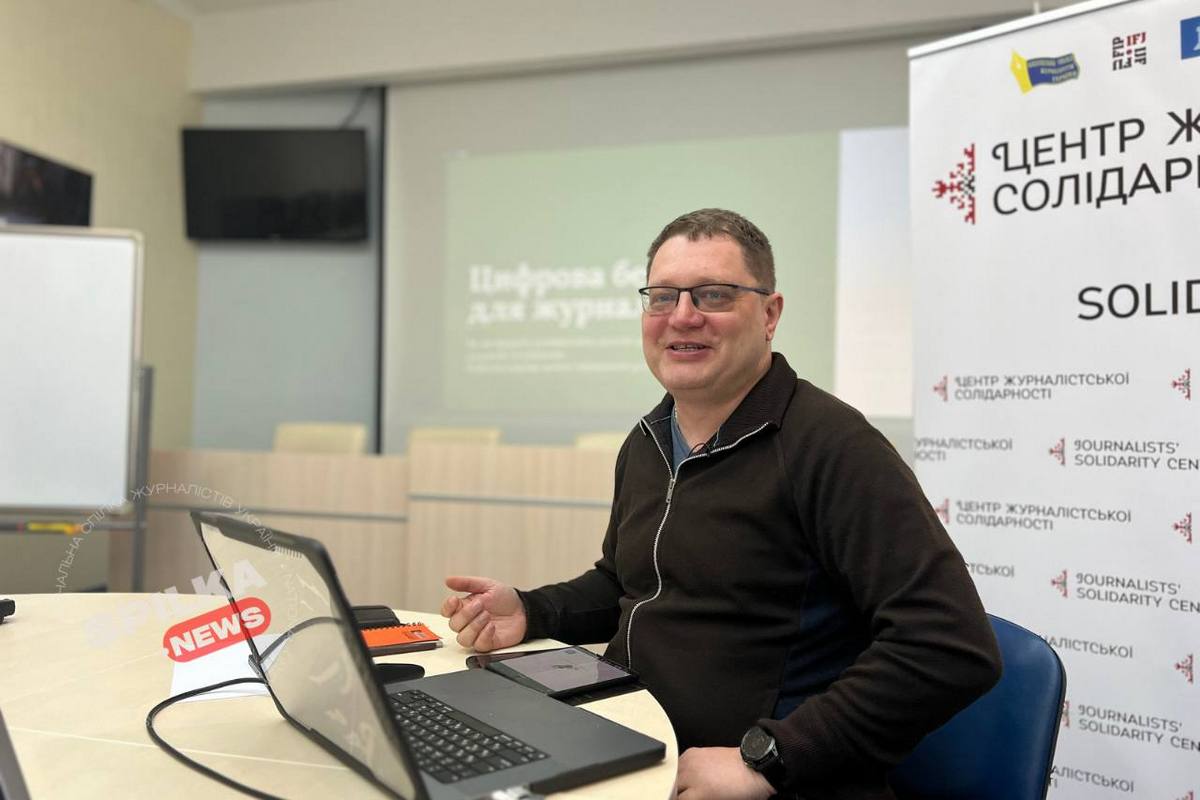
As earlier reported, the Journalists’ Solidarity Centers is an initiative of the NUJU implemented with the support of the International and European Federations of Journalists and UNESCO. The initiative is designated to help media representatives working in Ukraine during the war. The Centers operate in Kyiv, Lviv, Ivano-Frankivsk, Chernivtsi, Zaporizhzhia, and Dnipro and provide journalists with organizational, technical, legal, psychological, and other types of assistance.
UNESCO is the United Nations Educational, Scientific, and Cultural Organization. It contributes to peace and security by promoting international cooperation in education, sciences, culture, communication, and information. UNESCO promotes knowledge sharing and the free flow of ideas to accelerate mutual understanding. It is the coordinator of the UN Action Plan on the Safety of Journalists and the Issue of Impunity, which aims to create a free and safe environment for journalists and media workers, thus strengthening peace, democracy, and sustainable development worldwide. UNESCO is working closely with its partner organizations in Ukraine to provide support to journalists on the ground.
The designations employed and the presentation of material throughout this digest do not imply the expression of any opinion whatsoever on the part of UNESCO concerning the legal status of any country, territory, city, or area or its authorities or concerning the delimitation of its frontiers or boundaries.
The authors are responsible for the choice and the presentation of the facts contained in this digest and for the opinions expressed therein, which are not necessarily those of UNESCO and do not commit to the organization.
NUJU Information Service

 THE NATIONAL UNION OF
JOURNALISTS OF UKRAINE
THE NATIONAL UNION OF
JOURNALISTS OF UKRAINE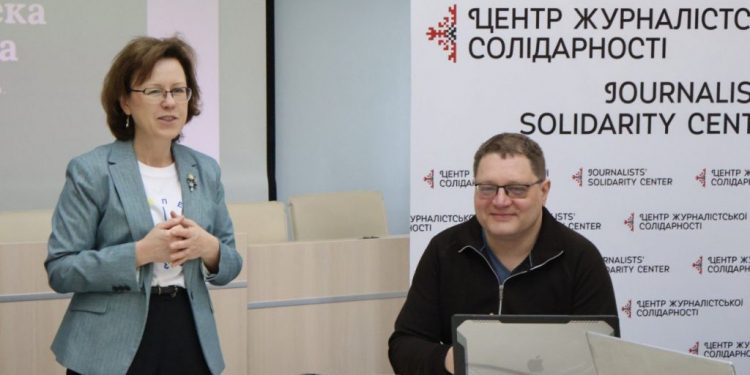
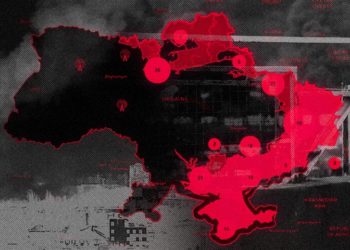
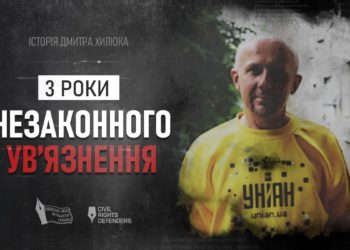














Discussion about this post